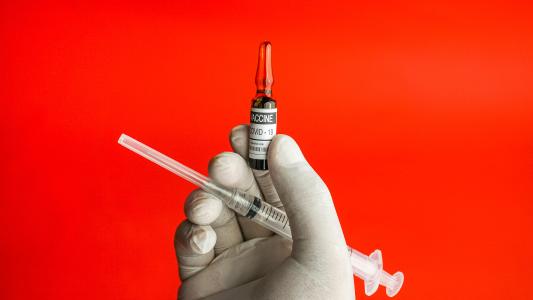During a recent appearance on NBC’s TODAY show, Anthony Fauci, the U.S.’s leading expert on infectious diseases, made a prediction about COVID-19 vaccine availability that should be music to the ears of millions.
“If you look at the projection, I would imagine by the time we get to April, that will be what I would call, for (lack) of better wording, ‘open season,'” Fauci said. “Namely, virtually anybody and everybody in any category could start to get vaccinated.”
That might sound like a pipe dream amid all the stories of dose shortages, manufacturing challenges, and scheduling woes, but Fauci’s prediction about COVID-19 vaccine availability looks very plausible.
Here’s why.
Breaking Down COVID-19 Vaccine Availability
In December, the FDA authorized two COVID-19 vaccines, Pfizer’s and Moderna’s, both of which call for two shots.
In the last week of December, the U.S. was administering an average of just 250,000 vaccines per day — at that pace, it would’ve taken more than four years to fully vaccinate 200 million adult Americans.
Now that the vaccination campaign is in full swing, however, it’s going much faster — in the past week, the daily average was more than 1.6 million shots.
At that pace, we could have every adult American vaccinated by September, so giving everyone the opportunity to sign up for a shot starting in April seems reasonable.
That timeline for COVID-19 vaccine availability seems even more reasonable when you consider the fact that the U.S.’s vaccine supply is likely to increase significantly over the next couple of months.
Pfizer just announced that it’s going to deliver 120 million doses before the end of March — 20 million more doses than initially planned (a happy accident due to the discovery that each vial holds six or seven doses, and not just five). By the end of May, it plans to deliver 200 million doses.
Moderna, meanwhile, is aiming for at least 100 million doses by March, and it has asked the FDA to let it put more doses in each vial. If that request is approved, it’ll be able to deliver tens of millions more doses than expected by the end of March.
Warp Speed, For Real
So, just from Moderna and Pfizer, the U.S. expects to receive about 175 million doses between now and April — compared to the only 69 million doses distributed so far. Even better, COVID-19 vaccine availability might not even be limited to those two companies for much longer.
The FDA is already considering authorizing Johnson and Johnson’s one-dose coronavirus vaccine, and Novavax and AstraZeneca could both be filing authorization requests for their shots in the coming weeks.
Moderna and Pfizer are expected to deliver 175 million doses by April.
Any (or all) of those COVID-19 vaccines could be authorized before April, giving the U.S. plenty of shots to go around. And, as proven by the seasonal flu vaccine, the nation is capable of doling out at least twice as many shots per day as it is currently.
“As we get into March and April, the number of available doses will allow for much more of a mass vaccination approach,” Fauci told TODAY, “which is really much more accelerated than what you’re seeing now.”
We’d love to hear from you! If you have a comment about this article or if you have a tip for a future Freethink story, please email us at [email protected].






